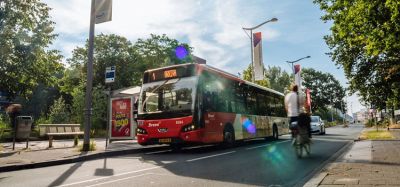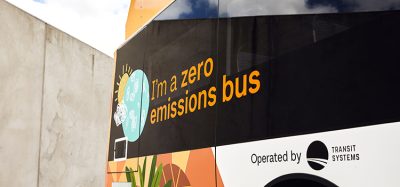EIB boosts Poland’s electrification with €480 million loan
- Like
- Digg
- Del
- Tumblr
- VKontakte
- Buffer
- Love This
- Odnoklassniki
- Meneame
- Blogger
- Amazon
- Yahoo Mail
- Gmail
- AOL
- Newsvine
- HackerNews
- Evernote
- MySpace
- Mail.ru
- Viadeo
- Line
- Comments
- Yummly
- SMS
- Viber
- Telegram
- Subscribe
- Skype
- Facebook Messenger
- Kakao
- LiveJournal
- Yammer
- Edgar
- Fintel
- Mix
- Instapaper
- Copy Link
Posted: 1 April 2020 | Sam Mehmet (Intelligent Transport)
The loan agreement aims to boost innovative manufacturing of batteries and equipment for electric vehicles in Poland as the country looks to advance its electrification.


The European Investment Bank (EIB) has signed a €480 million loan agreement for the construction and operation of highly automated and innovative manufacturing facilities for advanced lithium-ion (li-ion) cells and batteries for battery-powered electric vehicles (BEVs) in Poland. The EIB financing will cover around a third of the total project costs, estimated at €1.5 billion, and it aims to accelerate the countries drive to the electrification of its transport fleets.
The project supplements smaller production facilities on the same site and presents several novelties, including a fully smart factory with newly developed cutting-edge technologies to mass-produce the latest generation of high energy density li-ion electrodes, cells, modules and battery packs, improving energy density, fast-charging capability, safety and cost efficiency.
The EIB-backed project by LG Chem Wroclaw Energy, the Polish subsidiary of the LG Chem Group, will have an annual production capacity of over 35 GWh which can potentially power more than 500,000 zero-emission electric cars per year, contributing to the transition from fossil fuel-powered internal combustion engine-based vehicles toward electromobility and sustainable transport.
Teresa Czerwinska, Vice-President of the European Investment Bank, who oversees operations in Poland, said: “This first EIB operation with LG Chem Wroclaw Energy is significant for many reasons. It helps Europe to build a critical mass in electric vehicle battery production at a pivotal time of electric vehicle commercialisation in Europe; it promotes a shift to electromobility and to a greener automotive industry; and it helps create new qualified jobs in an industrial region in transition to a new economic model. Today’s operation proves that with the right partners and the right projects in place we can combine cohesion objectives with innovation and strong climate action.”
Related topics
Alternative Power, Business Models, Sustainable Urban Transport
Related modes
Electric Transport
Related cities
Poland
Related organisations
European Investment Bank (EIB), LG Chem Wroclaw Energy
Related people
Teresa Czerwinska








